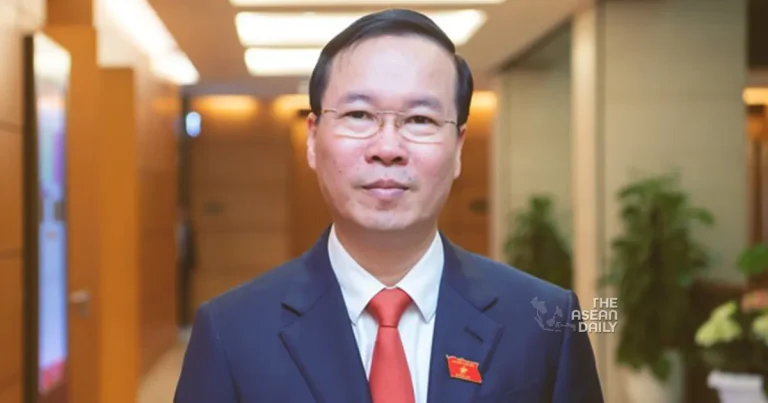21-3-2024 (HANOI) Vietnam’s typically stable political environment has been shaken by the abrupt resignation of its second president in just over a year, adding to the constant political drama unfolding in the country.
The upheaval has sparked concern among foreign investors, who have poured hundreds of billions of dollars into Vietnam, primarily in export-oriented factories catering to markets in America and Europe.
While there’s little anticipation of major shifts in key policies such as foreign affairs or trade openness, the unexpected reshuffles could undermine leaders’ credibility and further slow down the already cumbersome bureaucracy, according to several analysts.
Vo Van Thuong, 53, was effectively ousted from his position by Vietnam’s ruling Communist Party on allegations of unspecified wrongdoing, barely a year after assuming office.
Regarded as a rising star within the party, Thuong was the youngest member of the powerful Politburo and a protégé of party chief Nguyen Phu Trong. His downfall was as sudden as his ascent from a relatively modest position within the party hierarchy.
Prior to him, Nguyen Xuan Phuc was also unexpectedly removed from office in 2023 for “violations and wrongdoing” after serving less than two years as president. Phuc had been credited with supporting pro-business reforms during his tenure as prime minister.
The sudden death of then-president Tran Dai Quang in 2018 led to Trong assuming the presidency alongside his leadership of the party.
Vietnam operates under the leadership of four key figures: the party chief, the president, the prime minister, and the chairman of the parliament.
The general secretary of the party holds the most power in Vietnam. Trong, the current chief, is a 79-year-old Marxist-Leninist ideologue known for his anti-corruption campaign. His third term is set to conclude in 2026.
The president, while largely ceremonial, plays a role in international relations and high-level representation.
The prime minister wields executive powers and influences legislation. The incumbent, Pham Minh Chinh, has overseen steady economic growth since assuming office in 2021.
The chairman of the National Assembly, Vuong Dinh Hue, has been mentioned as a potential candidate for the party secretary position.
Vice-President Vo Thi Anh Xuan has been appointed as acting president, a position she briefly held in 2023.
The election for the permanent president, likely to be held in May, could see candidates such as Minister of Public Security To Lam and party veteran Truong Thi Mai contending for the position.
Other potential candidates include Defence Minister Phan Van Giang and Ho Chi Minh City party secretary Nguyen Van Nen.
A broader reshuffle might also occur, potentially leading to the Prime Minister or the head of the Parliament assuming the presidency, thereby vacating their current roles.




